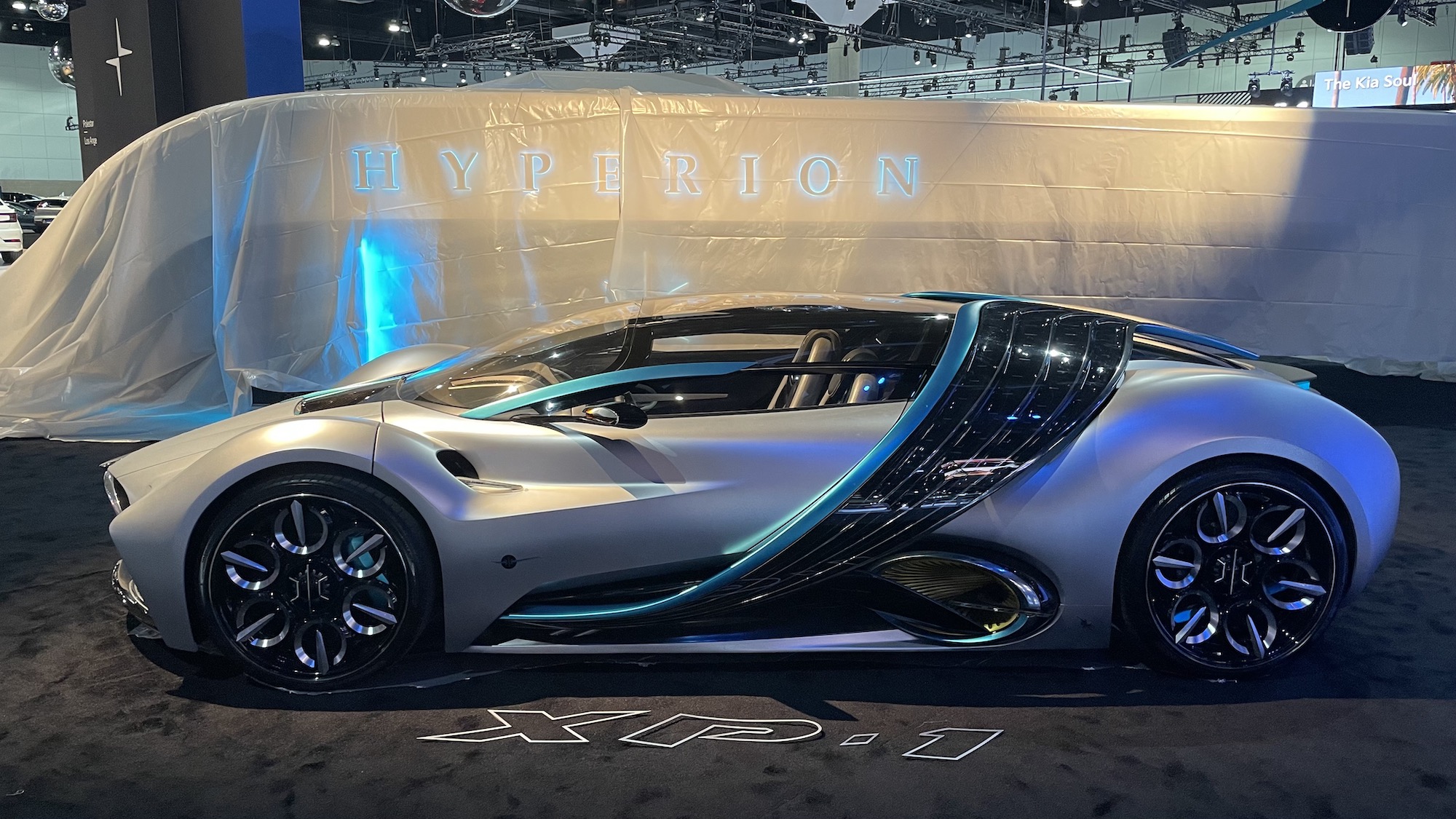The 2022 Los Angeles Auto Show is in the rearview mirror, leaving us with one final task: sharing a roundup of the weird and wonderful, the awkward and eye-popping vehicle unveilings and new announcements that made this year’s show.
The auto show didn’t quite capture the energy of those heady pre-COVID pandemic days, although it was much livelier than last year.
Electric vehicles, and the greenwashing that often comes with it, took center stage, and hydrogen fuel cell technology made a few cameos at the 2022 LA Auto Show. There were even a several startups that showed up to reveal electric restomods, 3D printing tech and three-wheeler design.
Let’s dig into the good, bad, ugly and surprising moments of the 2022 LA Auto Show.
Toyota Prius gets a makeover
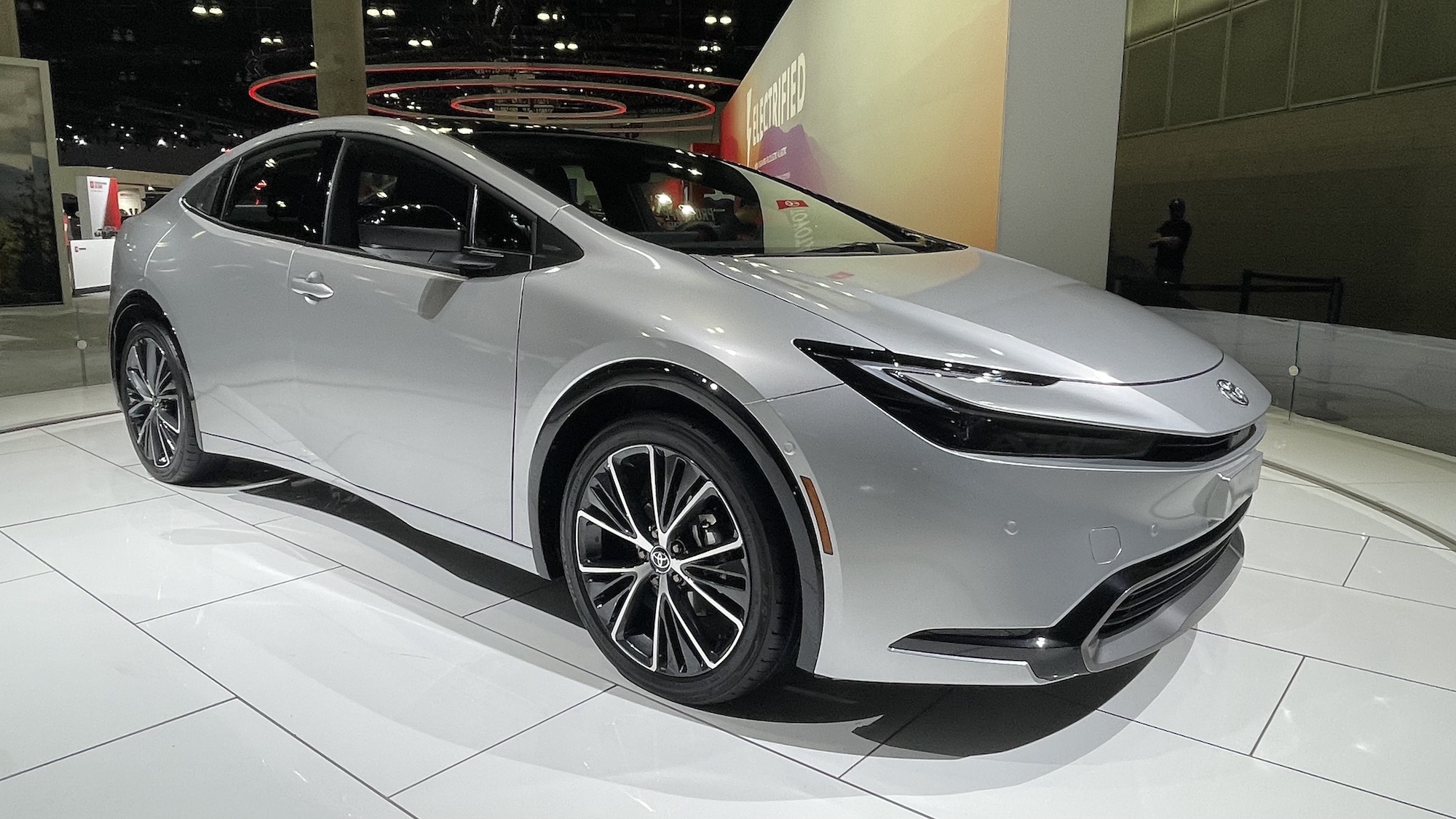
Image Credits: Kirsten Korosec
Word on the street is that there was an internal debate at Toyota headquarters over the future of the Prius: leave it unchanged and allow it to maintain its commodity car status or invest in the vehicle and give it a makeover?
The company took the latter approach and the end result surprised a lot of people who were on-hand for the reveal at the 2022 LA Auto Show.
The upshot? The Toyota Prius is attractive, even sleek. The all-new Toyota Prius has a sportier powertrain and curvier, low-slung silhouette to broaden its appeal to sports car customers who would not have considered a Prius in the past. However, the hybrid won’t become much greener: Toyota said the new model can deliver 57 mpg, similar to the outgoing Prius.
A lower, longer and wider Prius Prime, the nameplate’s plug-in hybrid version, also debuted at the auto show. The electric range on this PHEV went from 25 miles to 37 miles, a 50% increase.
Toyota also revealed a new concept under its “beyond zero” badge.
Porsche 911 gets a rally mode

Image Credits: Kirsten Korosec
Porsche wanted to pay homage to the Porsche 953, a heavily modified 911 Carrera, that took home the prize at the 1984 Paris-Dakar Rally. So, it took a Carrera 4 GTS coupe and turned it into a four-wheel drive sporty monster capable of tackling sand dunes, gravel and rocky passes. The Porsche 911 Dakar comes with a sport suspension — the only 911 to have one — a tuned chassis package, rear-axle steering and a twin-turbo flat-six engine that produces 473 horsepower, which is transferred to all four wheels by the 8-speed Porsche Doppelkupplung (PDK).
There are two new modes, rally mode for gravel roads, muddy trails and wet grass, and offroad mode for sand dunes and rocky conditions. The automaker removed the backseats, added lightweight components like a carbon fiber hood and lighter glass, a red toe hook and special dual-carcass tires specially designed with Pirelli to prevent punctures.
Porsche said it is making 2,500 of the 911 Dakar, which starts at $220,000.
Vinfast’s U.S. strategy: SUVs
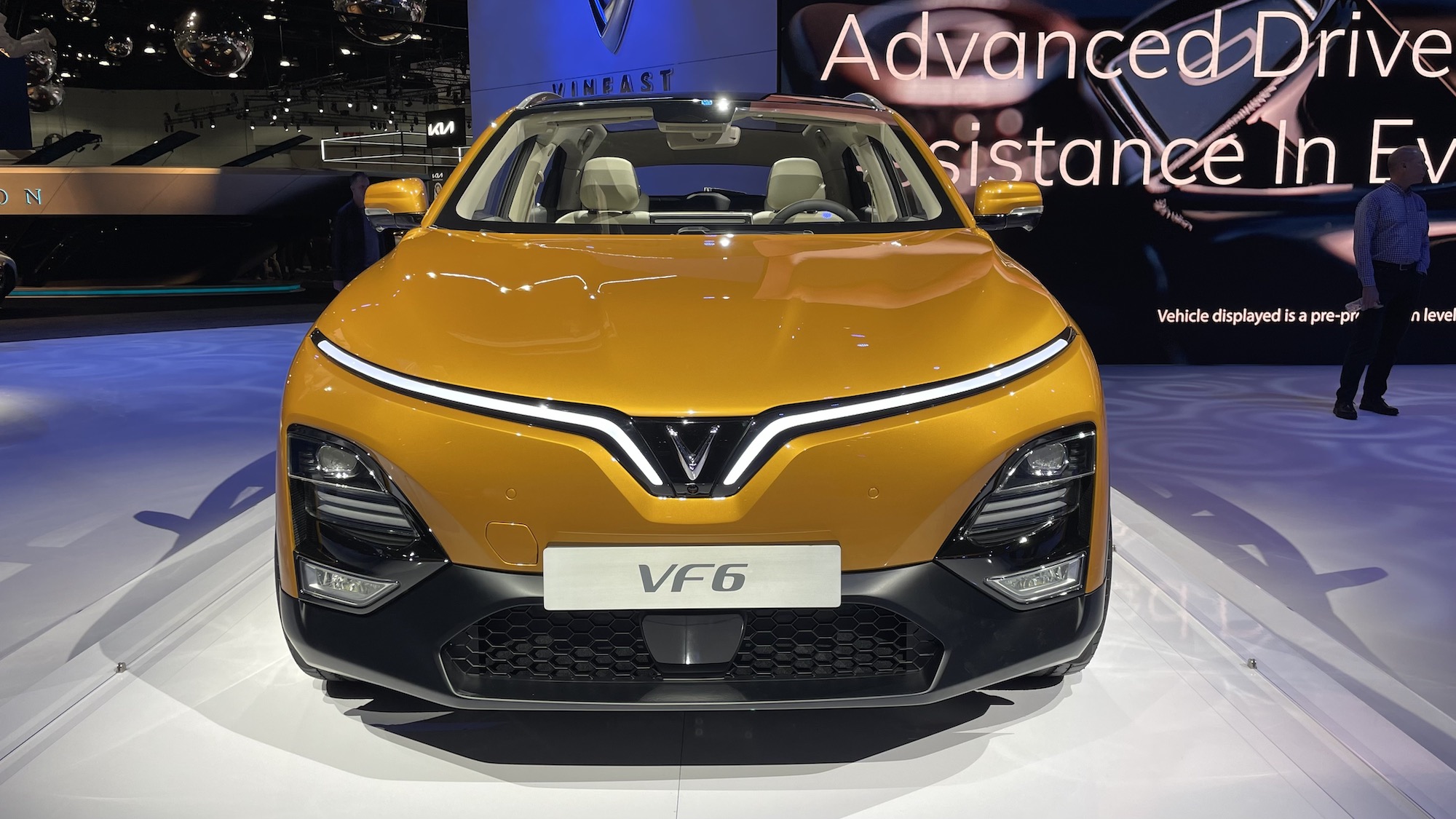
Image Credits: Kirsten Korosec
Vinfast really wants to tap into the U.S. market. And its answer is an SUV in every size.
The company revealed four EVs, ranging in size from small five-passenger crossovers to large seven-passenger SUVs. VinFast expects to bring two SUVs, the VF6 and VF7, to market by early 2023.
Vinfast unveiled some vehicles at the 2021 LA Auto Show. But those had a decidedly prototype feel. This year, the vehicles seemed more complete. The company even showed off the interior and gave rides.
Vinfast still has a ways to go but it’s getting much closer. And its next vehicle might even be a sports car.
Hydrogen fuel cells pop up
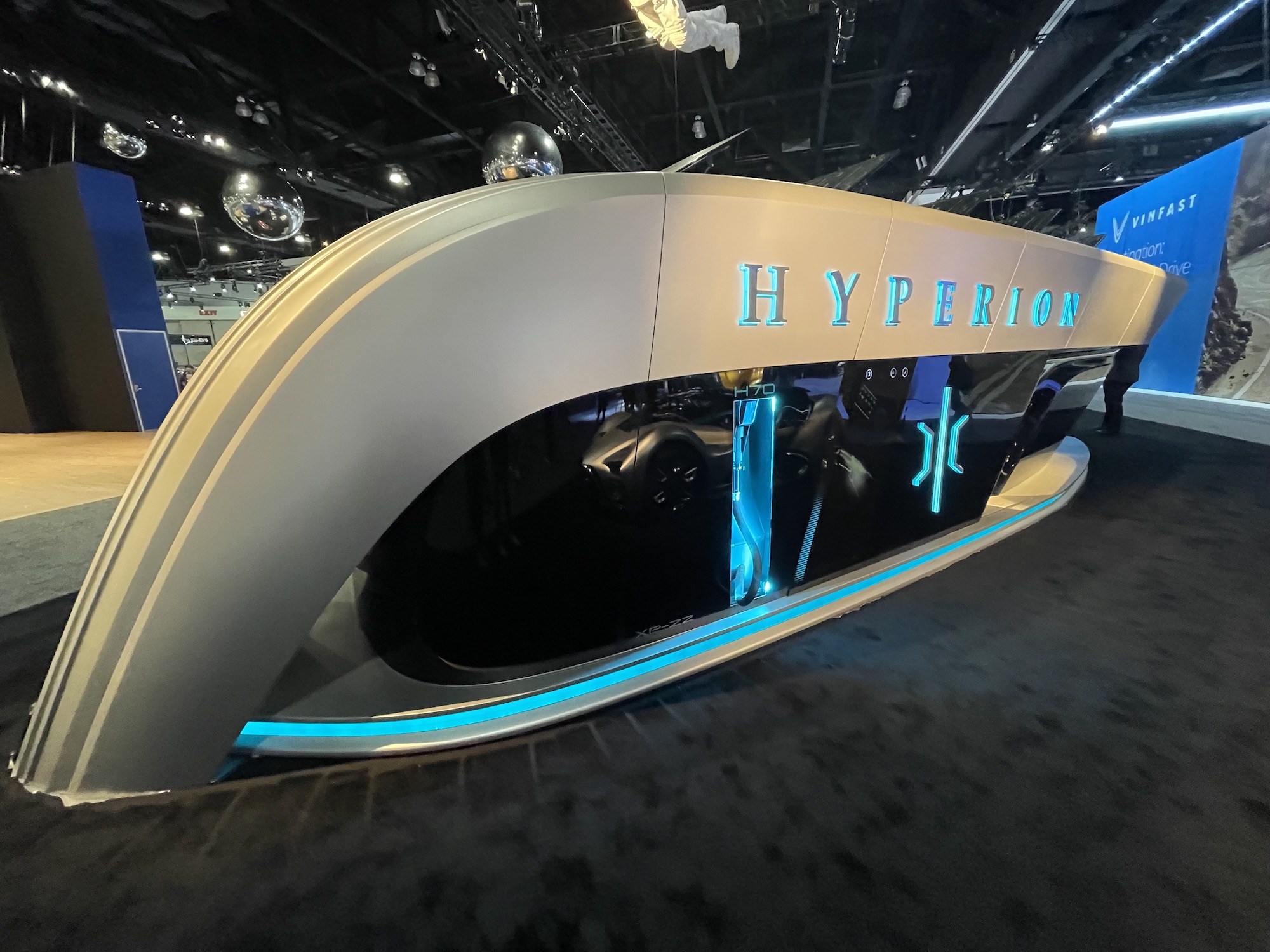
Image Credits: Kirsten Korosec
Hyperion showed off its vision for hydrogen refueling, a space station-inspired and mobile station able to store 200 kilograms of the fuel. The mobile station, which has an estimated cost of $900,000, can be transported to different locations depending on the need. The station is also equipped with solar panels to provide power to the station’s accessories such as lighting.
For this to be green hydrogen, which Hyperion advocates, a system would have to be located next to renewable energy like wind or solar power. The fuel could be made on site, then shipped to the stations.
The so-called “XF-1 Hyper:Fuel” mobile hydrogen station can also alleviate strained utility grids by providing mobile emergency backup power with its advanced hydrogen-electric storage systems.
Hyundai’s concept is not DeLorean inspired
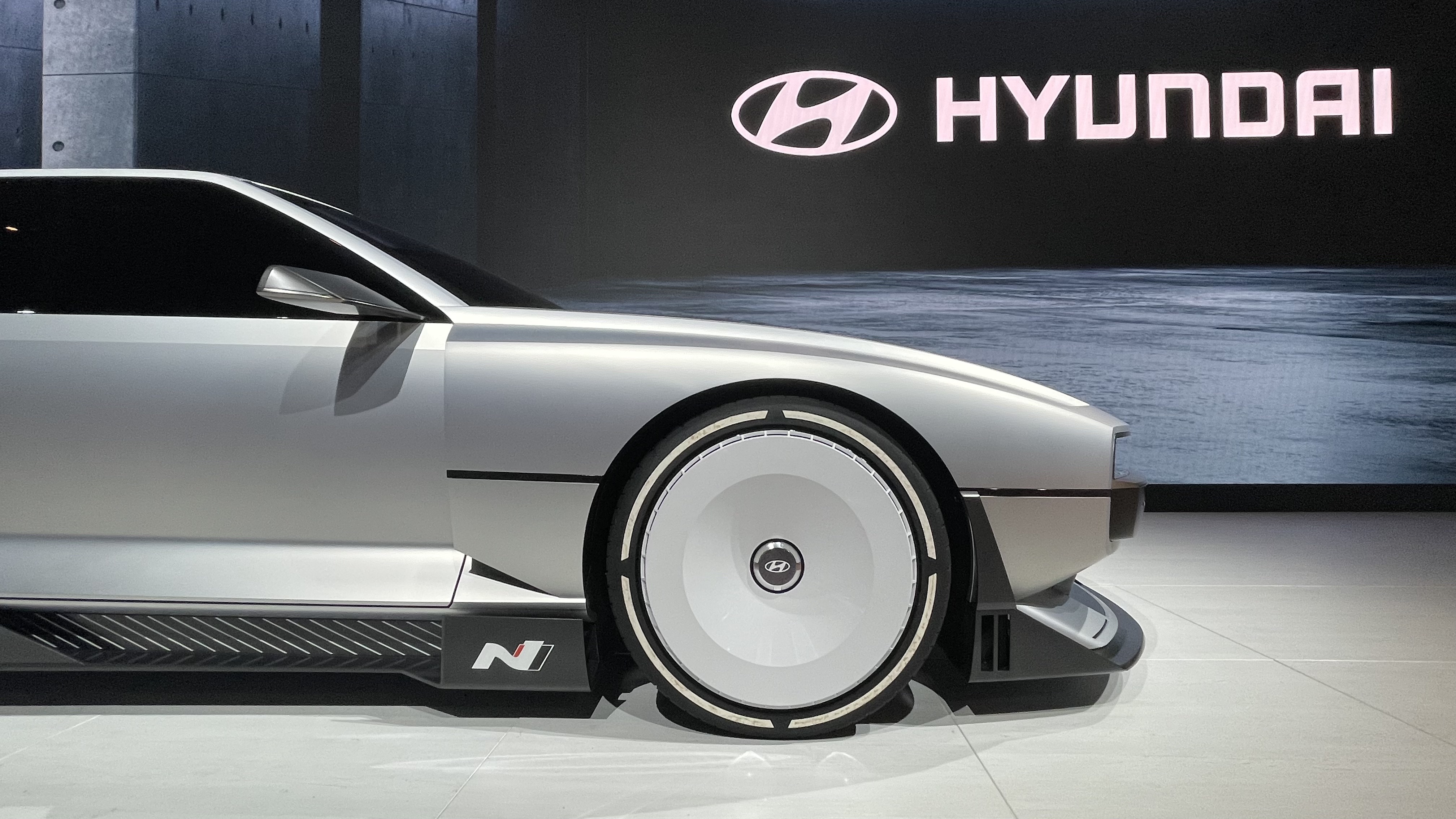
Image Credits: Kirsten Korosec
A hydrogen fuel cell hybrid concept vehicle called the Hyundai N Vision 74 received a number of “hey that looks like a DeLorean!” But Sang Yup Lee, the Hyundai Global Design Center and an executive vp at the automaker, was quick to make the correction.
The N Vision 74 pays homage to the Hyundai Pony Coupe concept from 1974, which was developed by the legendary car designer Giorgetto Giugiaro, who also designed the DeLorean. (The DeLorean made its debut in 1981 after the Pony Coupe.)
“Don’t say they look alike, because we did it first,” Lee said.
Hyundai calls the N Vision 74 a “rolling lab,” — a testbed of sorts for future products, including how electrification may play a part.
A muscle car, hold the vroom

Image Credits: Harri Weber
Startup Charge Cars showed off its 67, a carbon-fiber clad EV inspired by a 1967 Mustang — just don’t expect it to growl like a V8.
“This car, when it’s on the road, you get, for free, honest EV noise,” said chief creative officer Mark Roberts, who was hired away from McLaren in 2020. “I hate the whole thing of people having fake spaceships, or symphony orchestras, and things like that,” the exec said.
He added during a presentation at the 2022 LA Auto Show: “You might think for 10 seconds, ‘hey, that’s fine.’ Then you switch it off.”
Ford apparently sees things differently! The Detroit automaker built optional faux engine noise into its Mustang Mach-E, and plenty of other firms have turned to more out-there sound effects, even melodies, to accompany quieter EVs.
Fiat’s strategy for the all-electric 500e is experimental
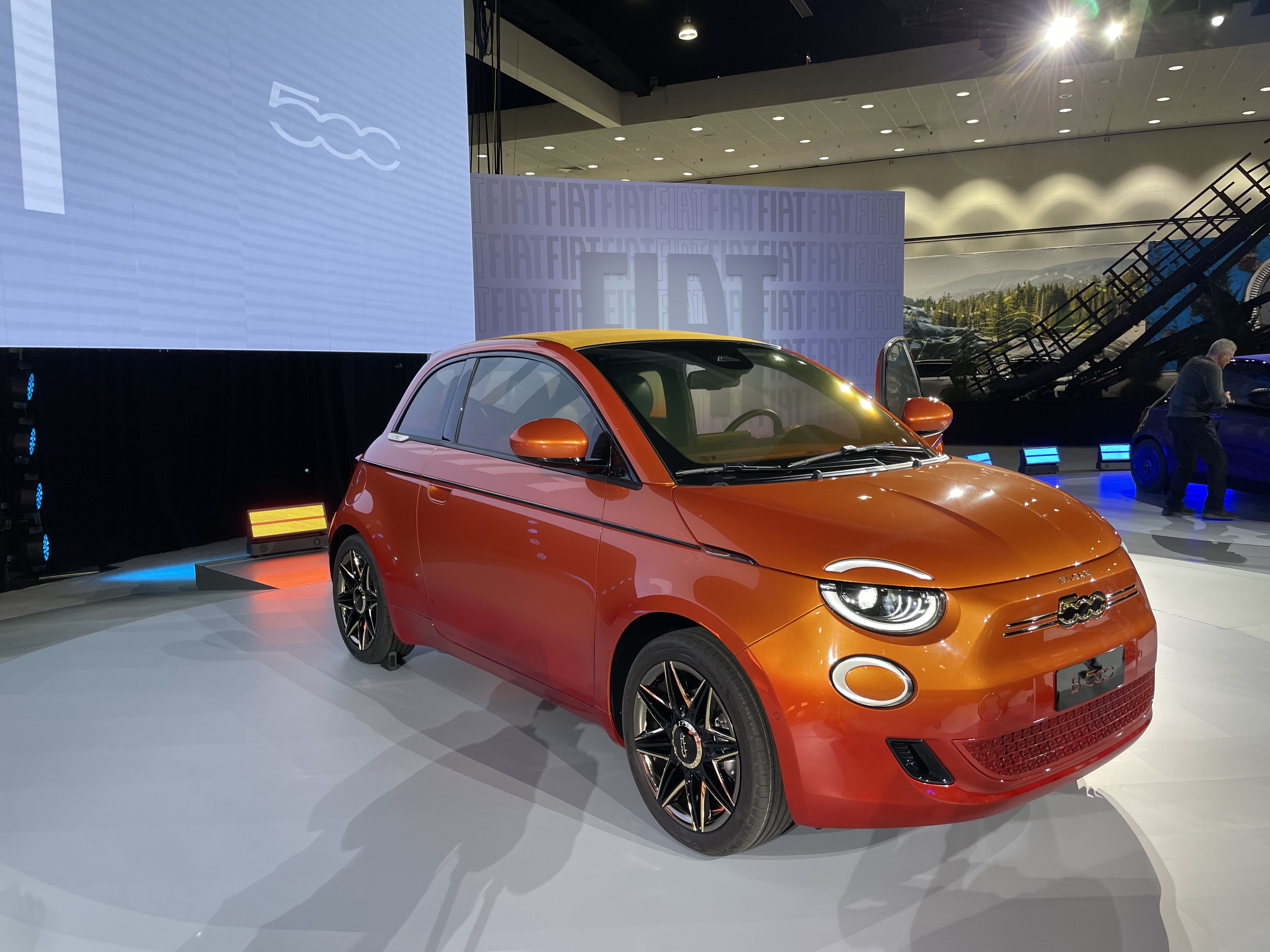
Image Credits: Kirsten Korosec
The all-electric Fiat 500e launched in Europe in 2020 and has since sold like hot cakes in the region. The diminutive vehicle — fresh with a purpose-built EV platform — has proven to be a massive success for Stellantis. Whether it will be embraced by U.S. buyers is unclear.
Fiat CEO Olivier Francois took a hey-let’s-get experimental tone in an interview after his on-stage presentation about the upcoming Fiat 500e that will come to North America in early 2024.
Stellantis plans to “explore alternative business models,” such as subscriptions and car sharing, when it launches the Fiat 500e in the United States. Francois did not rule out limiting the 500e’s U.S. launch entirely to subscriptions come early 2024, saying: “Maybe you will never have a price. Maybe it will just be usership. Maybe there will be there will be a combination of both.”
The executive added cryptically, “There will be a healthy dose of digital, that’s for sure. We all collectively need to reinvent the business model.”
Here are a few more details on the Fiat 500e slated for the US.
Recycled gold dust, sea-trash seats
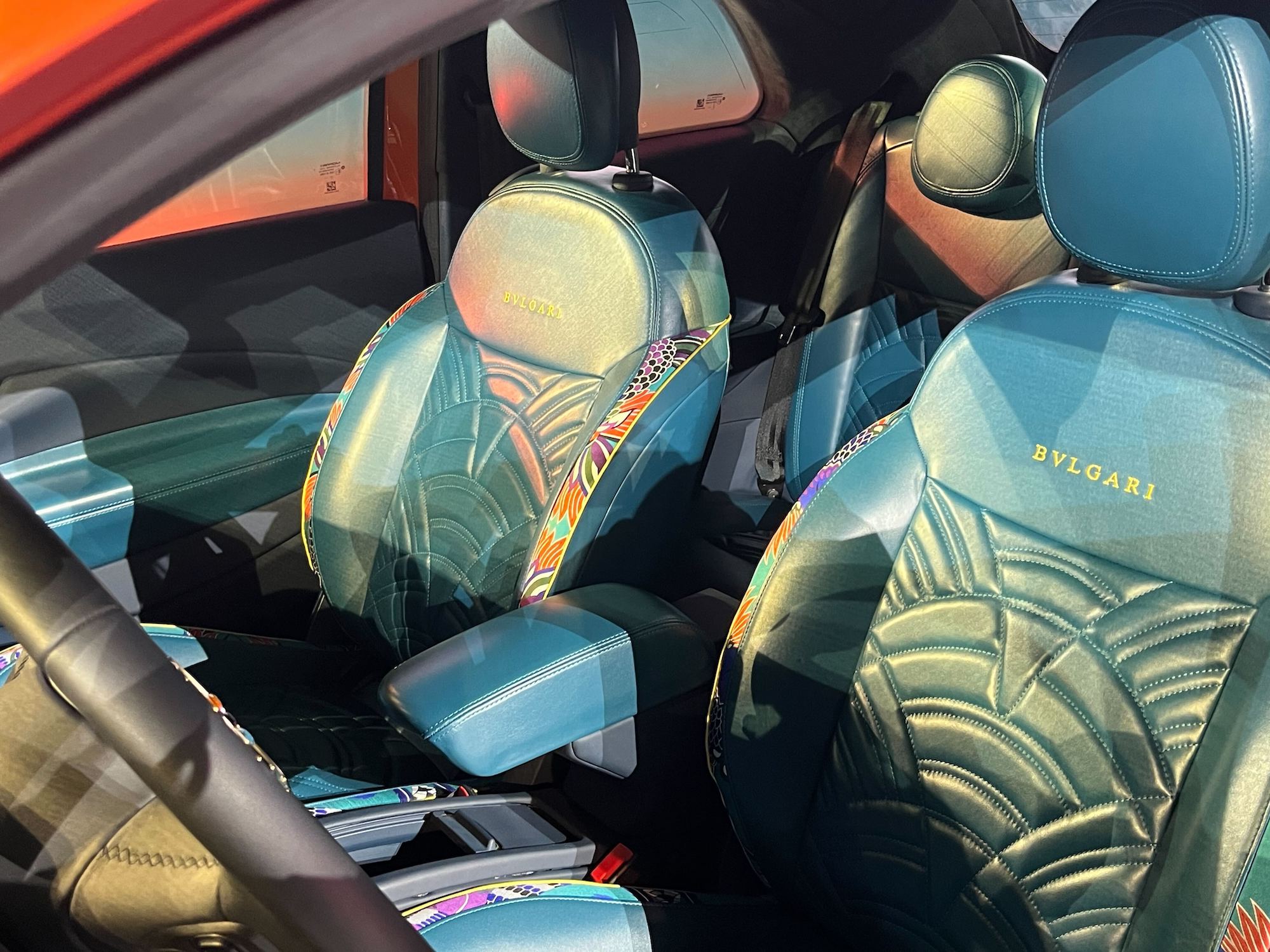
Image Credits: Harri Weber
While hyping up the 500e’s return to the U.S., Fiat showcased three one-off vehicles made in collaboration with Bvlgari, Kartell and Armani. For the 500 Bvlgari’s exterior in particular, the brand “literally turned recycled gold from their jewelry making into metallic paint,” Fiat CEO Olivier Francois said. He added, “nothing is too precious to not be reused.” The vehicle also featured seats made with recycled ocean plastic.
Fiat’s one-offs are destined for auction, and when the all-electric 500e comes to the U.S. in early 2024, its exterior won’t come freckled in actual gold. But according to Francois, the North American 500e’s seats will be “really made with reclaimed plastic taken from the oceans.” The executive declined to share specifics, including what percentage of the seats will be made with virgin plastic.
A few more bits of coverage:
► Everything we know about the 2023 Hyundai Ioniq 6
► Genesis teases its EV future with the Genesis X convertible
► Hyundai launches home charging ecosystem
Stay connected with us on social media platform for instant update click here to join our Twitter, & Facebook
We are now on Telegram. Click here to join our channel (@TechiUpdate) and stay updated with the latest Technology headlines.
For all the latest Technology News Click Here

